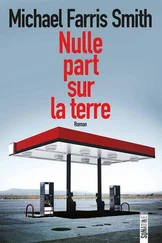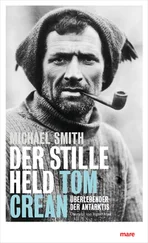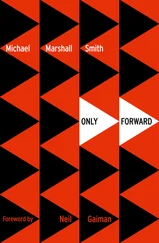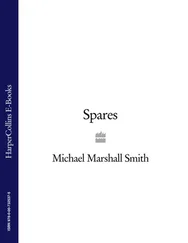The author of ‘Justice and Injustice Between Species’ began his analysis of the case by changing the dogs into children, a trick that would normally challenge even the most skilled stage magician, but which, for a philosopher conducting a thought experiment, is as easily done as said. A parent would be making a grave mistake were she to give a whole biscuit to a favoured child and none to another, but does the same rule apply to the owner of an animal? The answer will obviously depend, the author - a consequentialist - said, on the consequences of this act of preference. The favoured dog will be happy enough, but his unlucky companion will surely feel disappointment at not being given his share; that is, of course, if he has a notion of sharing, which, being a dog, he will not. So one must avoid, the author pointed out, any suggestion that the less fortunate dog will feel that he has been the victim of injustice. There is no such thing in the mind of a dog.
Or is there? A distinguished legal philosopher, making a point about the difference between the unintentional and intentional causing of harm, once said that even a dog could tell whether a kick from its owner was intended or unintended. If this is the case, then surely it suggests that there is in the canine mind some notion of desert, which has some connection with fairness.
The debate continued over several issues of a learned journal until the editor drew a line beneath it, with a masterly summing up of the unresolved issues raised by the case. Freddie de la Hay was, of course, quite unaware of his celebrity. Philosophers were, to him, the same as all humans: luminous higher beings, dispensers of favours and makers of rules, guardians of the cupboard in which he knew his own dog biscuits were stored. When he lost his job at Heathrow, it meant a shrinking of his universe, from one of suitcases and noise to one of a house in Highgate with a master who seemed bent on making him do things that he had no wish to do. But he did them, for he was an obedient dog - he had been taught to comply at the airport - and he wanted only to please. So when he was instructed to treat cats with respect by the distinguished columnist, he did as he was bade.
Now, on the pavement outside Corduroy Mansions, he looked up at his new master and awaited his instructions. And when he spotted a movement on the other side of the road, he took no notice. That it was a cat was neither here nor there. He would not try to chase it, nor even growl. That was in the past, somewhere in the scheme of things of the old Freddie de la Hay. He would not growl. He would not.
At the same moment that William stood outside Corduroy Mansions with Freddie de la Hay at his side, Berthea Snark, psychoanalyst and near-neighbour of Corduroy Mansions, was arriving at Cheltenham station on the 3.15 from Paddington. It had not been a peaceful journey, thanks to a person opposite her who was engaged in a lengthy telephone call, oblivious of the fact that she was imposing her conversation on others. Berthea had struggled in vain to shut out the banalities this conversation inflicted upon her - the one-sided discussion of social events and the affairs of others. She had glared at the noisy passenger but had been greeted with a cool stare in response. Eventually she had moved seats, to what she hoped would be the quieter end of the carriage, only to find herself faced with a man whose false teeth were loose, and who sucked air through puckered lips, occasionally opening his mouth to allow the top set of teeth to fall forward before being pushed back into position with his tongue.
She closed her eyes. The carriage was full on this popular Friday afternoon train and she would not find another seat. By shutting out the sight of the man opposite, she was at least spared his unfortunate dentures. But that meant that she could not read, and closing one’s eyes was unquestionably a form of denial, something she was committed to criticising in others. No, one could not go through life with one’s eyes closed, tempting though such a solution might be.
She thought of a paper she might write for one of the journals, a paper she would call ‘The Eyes-closed Society’. It would be about the way in which bad behaviour in others was increasingly forcing people to pretend that parts of reality did not exist. It was an interesting theme, and she could develop it by exploring its social and political ramifications. As we became more burdened with distressing information - global warming, growing material need, the inevitability of a major flu epidemic and so on - the temptation simply to turn away became greater and greater. And so we denied the uncomfortable, the distressing - like those people who denied global warming. And so . . . She stopped. The observation was hardly original. People had always denied unpalatable truths. T. S. Eliot had written something about that, had he not? ‘Go, go, go, said the bird: human kind / Cannot bear very much reality.’ To say something original, she must come up with a prescription. Such books - and her article had now become a book - had to have some neat conclusion, some observation or insight that made people say Ah! when they read it. That man who wrote The Tipping Point knew all about it. People said Ah! when they read about tipping points. And presumably he, too, had experienced a tipping point when his tipping point book reached its tipping point.
But Berthea could not conceive of what she would say about denial, beyond pointing out that it happened. She could emphasise that one should not deny, but everybody knew that anyway. Could she say, then, that denial was a good thing ? That would be original at least. And then, when challenged in interviews - she would be invited onto all the best chat shows - she could simply deny that she said it in the first place, thereby making a very vivid point about denial.
The daydream ended, and so, eventually, did the journey. The man with the ill-fitting teeth had dozed off and remained asleep until shortly before Cheltenham. Berthea looked out of the window at the passing countryside. London seemed so far away, almost a different country from this world of fields and narrow lanes and slower lives. She thought: what if I packed everything up and came to live out here, perhaps sharing with Terence? She was on her way to spend the weekend with her brother, Terence Moongrove, who had more than once suggested that she would care to share his house in Cheltenham. It was easily large enough for two, he said, and she could even have a separate entrance if she wished. She had declined his offer, although it distressed her to do so. Terence was lonely - he was one of the loneliest men she knew - and it would have meant so much to him to have her living with him.
But she could not. She was a psychoanalyst, and she imagined that it would take time to build up a practice in a place like Cheltenham. She knew that there was an Institute of Psychotherapy in the West Country - she had met some of its members at conferences - but was there enough neurosis to keep them all going? Human unhappiness, of course, was universal, but somehow she imagined that it did not occur with quite the same intensity in the little villages that the train was flashing past. What was there to be anxious about out here? Why feel inadequate or troubled when nobody was paying much attention to you because the hay had to be got in or the cows milked, or whatever it was that people did in such places? If they did any of that any more, she reflected; or were they all plugged into the web, running hedge funds from the ends of these little lanes?
Of course, Cheltenham was slightly different. It was a place where people went to the races or retired to or came to make and sell pottery. And not all of these people would be free of the neuroses they had brought with them from somewhere else. So perhaps she might not be completely without something to do after all.
Читать дальше










